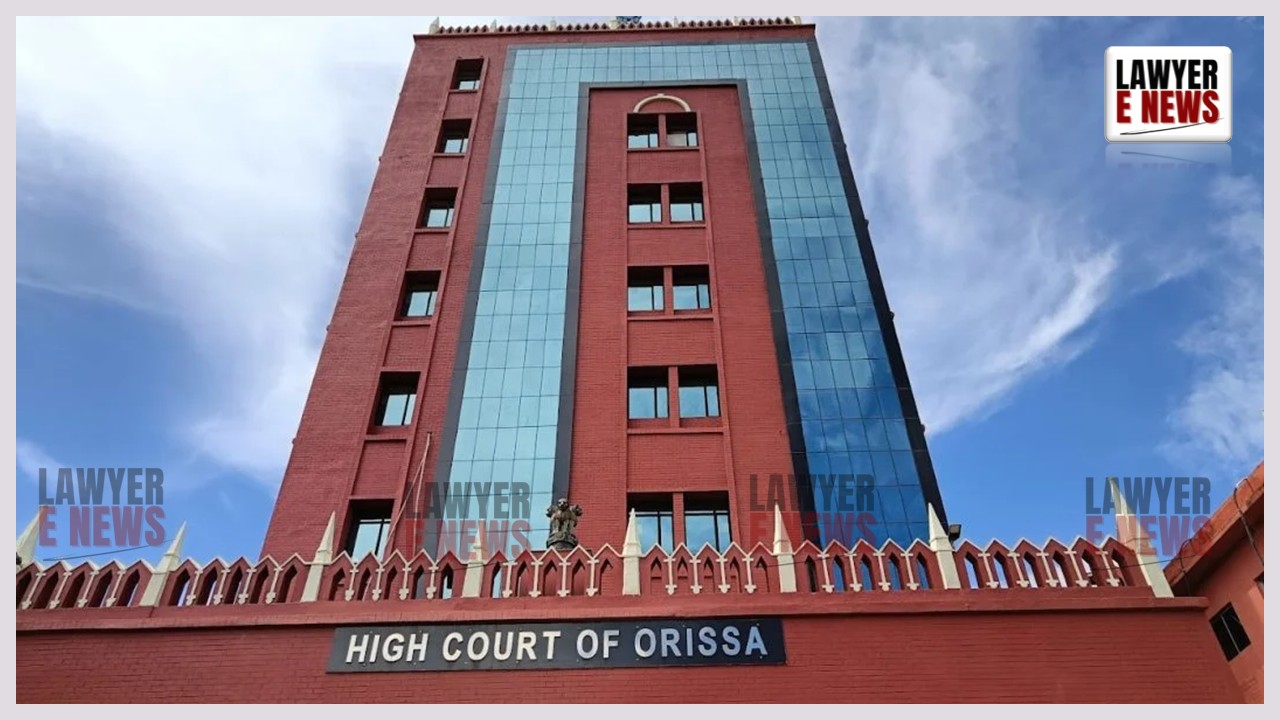-
by Admin
15 February 2026 5:35 AM



Law Students Must Embody Justice and Integrity - Orissa High Court quashed criminal proceedings against a group of law students accused of ragging, emphasizing the importance of accountability and ethical conduct in the legal profession. The case involved allegations of ragging filed under Sections 294, 341, 323, 324, 506, and 34 of the Indian Penal Code (IPC), but the Court noted that the parties had amicably settled the matter.
The FIR in Bharatpur P.S. Case No. 168 of 2024 was filed by the father of a first-year law student, alleging that senior students had ragged and threatened his son. The incident occurred at the SOA National Institute of Law. However, during the investigation, the petitioners—law students accused in the case—approached the complainant’s father and resolved the dispute amicably with the intervention of family members and well-wishers.
The petitioners filed affidavits expressing regret for their behavior and confirming the settlement. Similarly, the complainant’s father submitted an affidavit stating that the parties had resolved their differences, restored peace, and wished to end the proceedings. The affidavits highlighted mutual understanding and a commitment to maintain a harmonious relationship going forward.
The petitioners argued that subjecting them to the trial process would serve no useful purpose given the minor nature of the incident and the amicable resolution.
Justice Sibo Sankar Mishra noted that law students have a special responsibility to uphold societal and professional standards: "A good law student could eventually be a good lawyer, going beyond academic achievements. Lawyers are expected to support the cause of the vulnerable, advocate for justice, and uphold high standards of integrity. The conduct of the petitioners in this case is unbecoming of students of law."
The Court emphasized that pursuing legal education is not merely about personal success but about striving to create positive change in society.
While quashing the criminal proceedings, the Court imposed a unique condition on the petitioners. They were directed to volunteer at an orphanage for one week, either teaching or conducting workshops for the children. The Court observed: "This experience will nudge the impressionable youth into a positive direction. It will also instill in them a sense of accountability and responsibility."
The petitioners were required to submit a completion certificate from the head of the orphanage to the Court within four weeks.
The Court relied on the Supreme Court judgments in Gian Singh v. State of Punjab [(2012) 10 SCC 303] and B.S. Joshi v. State of Haryana [(2003) 4 SCC 675], which recognize the power to quash criminal proceedings in cases of personal disputes resolved amicably.
Justice Mishra remarked: "Subjecting the petitioners to the rigors of trial would be a futile exercise, particularly when the matter has been settled, and the allegations are minor in nature."
The Orissa High Court quashed the criminal proceedings in Bharatpur P.S. Case No. 168 of 2024, corresponding to C.T. Case No. 497 of 2024, pending before the JMFC (V), Bhubaneswar. It acknowledged the settlement between the parties while emphasizing the importance of ethical conduct for aspiring lawyers.
The judgment reflects a balanced approach to justice, blending accountability with compassion and aiming to guide young law students toward a constructive path in their legal careers.
Date of Decision: January 8, 2025
